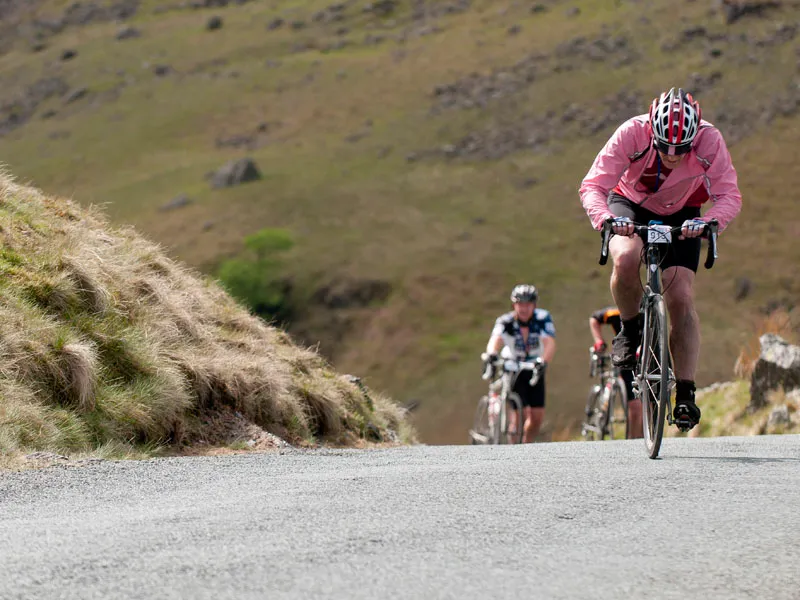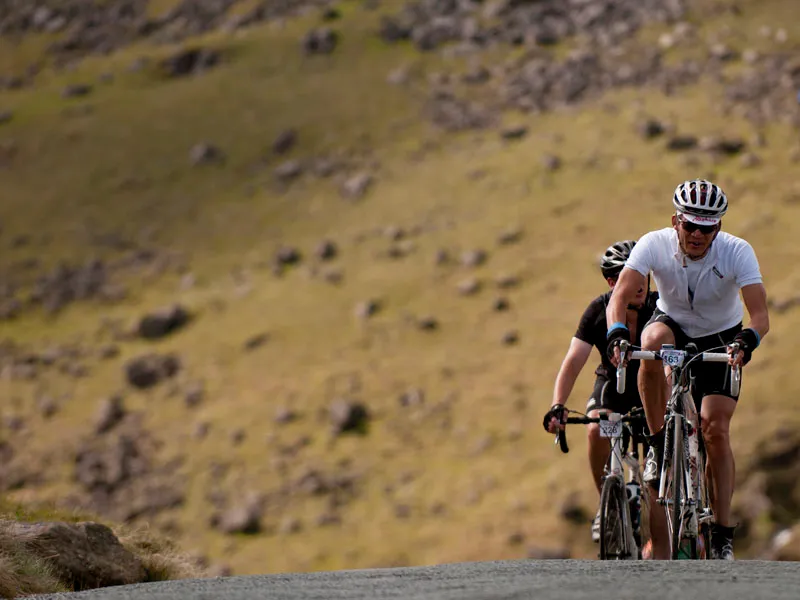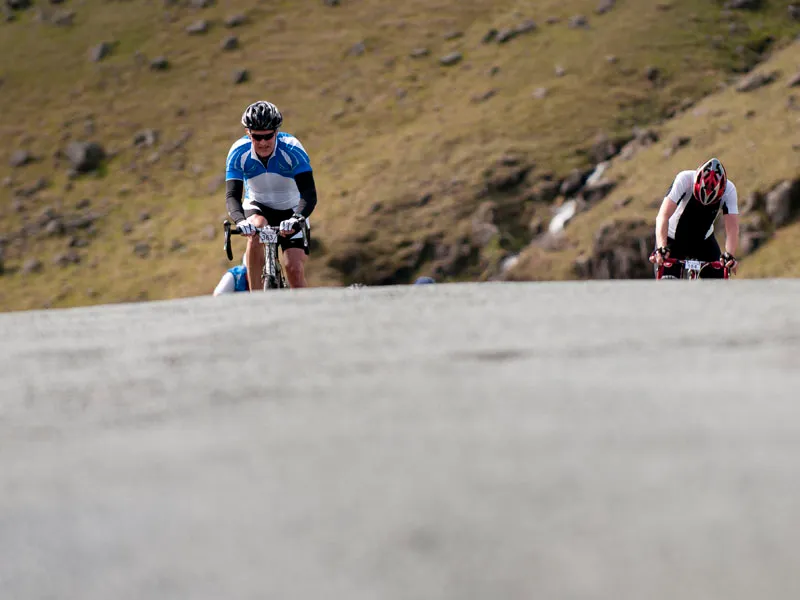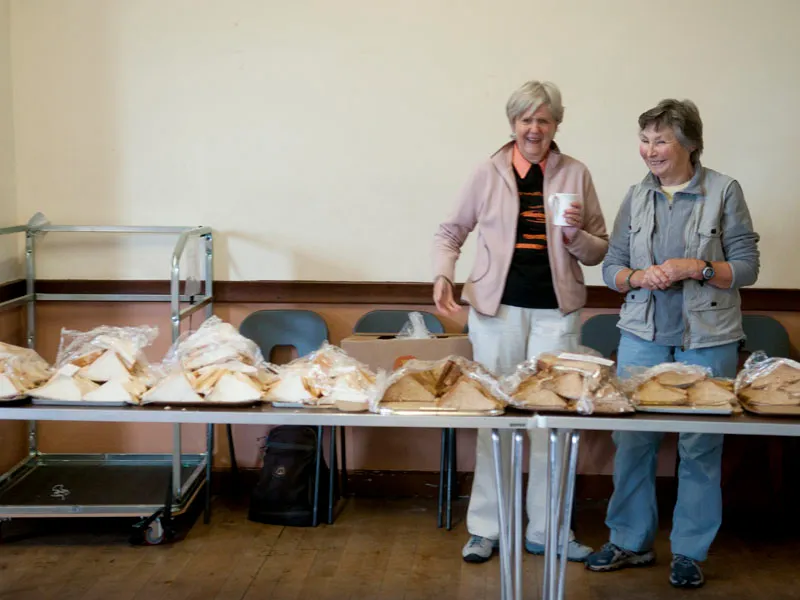Last Sunday saw me tackle what many believe to be Britain's toughest sportive. Several events could lay claim to this title – North Wales’s Dave Lloyd Mega Challenge (119 miles/7,875ft climbing) or the Wiggle Dragon Ride (124 miles/9,850ft climbing), to name just two. In my view however, there's no contest: the Lake District’s Fred Whitton Challenge was hands-down the most arduous single day’s riding I’ve ever done.
At 112 miles (my GPS had 114 on the clock when I finally crawled over the finish line in Coniston) and nearly 13,000ft of climbing, you’d have to search far and wide to find a more daunting cycling event on these shores. The route profile, etched onto the commemorative race jersey I wore throughout the day, resembles a particularly unhealthy ECG reading. There are seven major hill passes, including Kirkstone, Honister and Wrynose, scattered with sadistical precision at inopportune moments along the course. And Hardknott Pass – with its 33 percent gradient, the joint steepest road in Britain – rears its head after 100 leg-sapping miles.
Taking all that into account, it was a formidable challenge. Add to the mix relentless torrential rain, sleet and hail, torrid headwinds and more mechanicals than you can shake a stick at and you’ve got problems. If it sounds like I'm complaining, I'm not. I'm something of a glutton for punishment when it comes to cycling events; the more painful things get, the more I embrace them.
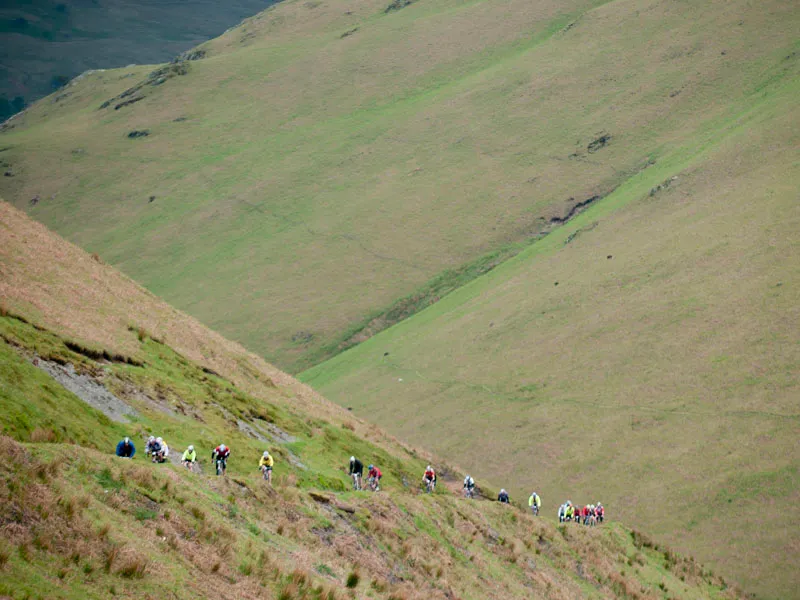
Over 1,400 people entered this year’s event, which makes it one of the busier rides of its kind. Some sportives lack the level of support required to effectively stage them, but the number of marshals, mechanics and stewards scattered right across the course make the Fred Whitton Challenge a class apart. Event organiser Paul Loftus told me it's the way in which the entire community has embraced the event that’s made it what it is, which can’t be said of all sportives across the country. The Lake District is a real hotbed for cycling and the numbers who volunteered their time, not to mention the incredible support every rider got from spectators across all 112 miles, showed just how popular it is.
Distributors Saddleback are now in their second year of sponsoring the event, and the mechanical service they provide is, in my experience, unrivalled. As reported by Bike Biz, they replaced 16 shredded tyres, 83 blown inner tubes and made singlespeeds out of nine bikes with busted derailleurs during this year's event. They were certainly kept on their toes, and weren’t helped by the atrocious conditions.
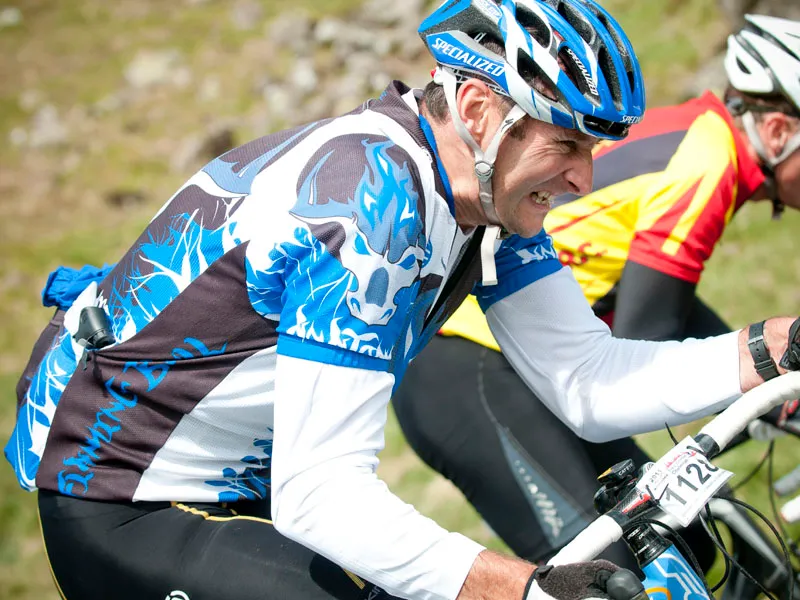
Considering this, it was pleasing – and surprising – to hear of how few serious accidents there were. The rain turned every descent into a game of Russian roulette but the air ambulance was called out just once (although two helicopters were sent for one person). The only other serious crash involved a chap who was lucky to escape with bruising when he ploughed into a wall. The incident, which left the front end of his bike in pieces, brought a whole new meaning to the phrase ‘a fork in the road’.
Of course the big attraction of the event is the amount and difficulty of climbing involved. I’d always thought I’d need to travel to Europe and ride an Etape du Tour or La Marmotte to really experience the pain of all-day climbing. Little did I know that just as gruelling an event was on my own doorstep. And in many ways, the climbing is even more severe. Obviously the ascents aren’t as uninterruptedly long as what you’d find in the Alps or Pyrenees, but I’d challenge anyone who says Hardknott or Honister Pass are easier on the legs.
So what do you think? Is the Fred Whitton Challenge the toughest sportive in Britain? If not, what is? And what about worldwide? Let us know your thoughts below...
